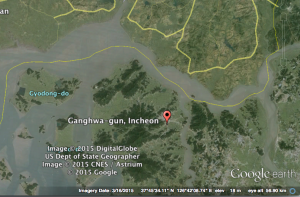By Benjamin Katzeff Silberstein
Who decides what in Pyongyang? Do fierce political battles rage between hardliners and reformers, where the former group struggles to replace nuclear belligerence with liberal market economics and trade? Whenever a purge or suspicious death occurs in Pyongyang, speculations come alive about potential policy changes by the regime.
It is a fool’s errand to make guesses about how North Korea’s claimed (but unlikely) hydrogen bomb test fits into the speculative dichotomy of modernizers versus conservatives. After all, such simple divisions are rare in the political life of any country. But looking at the test in the context of the past year makes it clear that Pyongyang is pursuing a messy mix of policies that are mutually exclusive.
At the same time as one “hand” of the regime attempts to draw foreign investment, diversify its investor base to include other countries than China, and take its industrial zones from plans to reality, the other “hand” is actively working against economic progress by nuclear tests and diplomatic belligerence. Either the left hand doesn’t know what the right hand is doing, or it does, but just doesn’t want it to succeed.
Perhaps this is the way that Byungjin – Kim Jong-un’s strategy of parallel development of nuclear weapons and the economy – was intended to work. (If so, the regime seems to be dedicating much more resources and energy to the nuclear part, while the economic one still mostly consists of words.) In any case, Pyongyang is trying to achieve two goals at the same time, and it isn’t working.
For example, in 2013, the North Korean regime announced the creation of over ten special economic zones, with more added in both 2014 and 2015. Progress has been uneven. Still, the North Korean regime has continuously indicated that the zones are a priority and will continue to be improved. Just in November last year, new regulations were announced for the special economic zones. Visitors and analysts report that elite businesses have been doing better and better in North Korea, and that the economic environment has become increasingly freer.
Whatever the list of Pyongyang’s priorities may look like, January 6th was not a good day for those North Koreans tasked with planning, building and administering the country’s special economic zones and projects. North Korea is already an unlikely destination for most foreign investors. Many low-wage competitors already sit relatively close by the country, such as Vietnam and Cambodia. North Korea’s comparative advantages are really quite few. Things are already difficult and the claimed H-bomb test certainly won’t help.
The international sanctions are just one part of the problem. Even with knowledge of what the current sanctions regime permits investors to do, the test is a stark reminder that legal hurdles will keep being added as nuclear and missile tests continue. This should deter any investor without special connections, political motives or a financial death wish. Not to mention the terrible PR and public criticism that would follow any (at least western) company deciding to invest in North Korea.
And then, there is of course the China factor. Sure, Beijing doesn’t comply with sanctions the way it is obligated to do. Moreover, as the Choson Exchange blog points out, North Korean and Chinese businesses tend to find a way to get around the sanctions. Last but not least, to a large extent, Chinese investment and cooperation with North Korea is a regional issue, with much of it driven by the northeastern border regions that depend on trade and exchange with the country.
But this doesn’t mean that Beijing won’t ever take concrete action felt by Pyongyang. China’s worries about North Korea’s nuclear tests are arguably more warranted than those of any other country. Residents in Yanji, a Chinese city on the North Korean border, even felt tremors from the bomb test, and teachers and students were reportedly evacuated from schools near the border. A trend is only a trend until it is no more. At the very least, events like the nuclear test don’t exactly make Chinese officials more prone to want to facilitate economic cooperation and infrastructure investments for North Korea.
It’s almost painful to think of all those hours spent in the North Korean administration, drawing up plans for new economic development zones and projects, new laws for investments and other institutional changes to improve the economy, only to see their colleagues in another part of government work in the opposite direction. If (and this is a big “if”) there are indeed policy factions in the government, with modernizers and conservatives, the latter have scored a victory on January 6th, at the expense of the former.
UPDATE 2015-01-07: James Pearson and Ju-Min Park at Reuters have done a very interesting overview (with Michael Madden of NK Leadership Watch) of the people behind North Korea’s nuclear program. It’s an important illustration of the fact that interest groups are not just a thing of business, but also of politics and ideas. Read it here.

